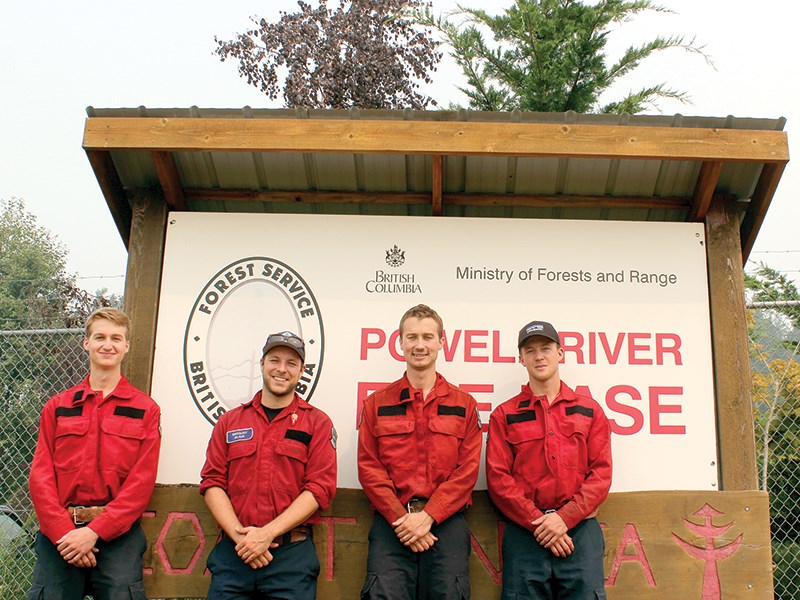With thick smoke currently blanketing the province, extreme wildfires are top of mind for everyone. In Powell River, BC Wildfire Service Initial Attack crew members are on maximum standby, ready to respond to any local fires or be deployed throughout the province. Often travelling by helicopter, they can be first responders to blazes on very short notice.
The Powell River crew includes brothers Mathias and Spencer Burns, David Rupf and crew leader Gregory Blais. Though risk is high, compared to the rest of the province it has been relatively quiet in the region this year, according to Blais. “There’s been one fire here in the backcountry recently and a lightning fire on Redonda Island,” he said. “Currently, there are some bigger fires burning in Toba and Bute inlets.”
The crew has been busy, however, responding to fires in neighbouring regions. “The North Island has had a lot more fires than we have, so we’ve spent quite a bit of time in the Campbell River area and Strathcona Park,” said Blais.
Powell River is within the coastal fire region, an area of 16.5 million hectares and the highest population density in the province. This means fires started in the region have a greater chance of affecting homes and infrastructure.
Around BC, wildfire season is far from over, according to BC Wildfire Services information officer Ryan Turcott. Since April 1, there have been 1,937 fires that have collectively burned 629 hectares of land. “We’re responding to 563 active wildfires,” he said. “We currently have over 3,738 personnel engaged responding to this fire situation. That number includes 782 personnel that have come to support us from out of province. In addition to these personnel we also have 239 aircraft supporting ground crews to fight wildfires in British Columbia.”
Blais notes that the number of personnel fighting fires around the province will diminish significantly in the coming weeks. “A lot of people going to school only work May to August so across the province pretty quickly they’re going to lose a lot of people who are working and helping.”



